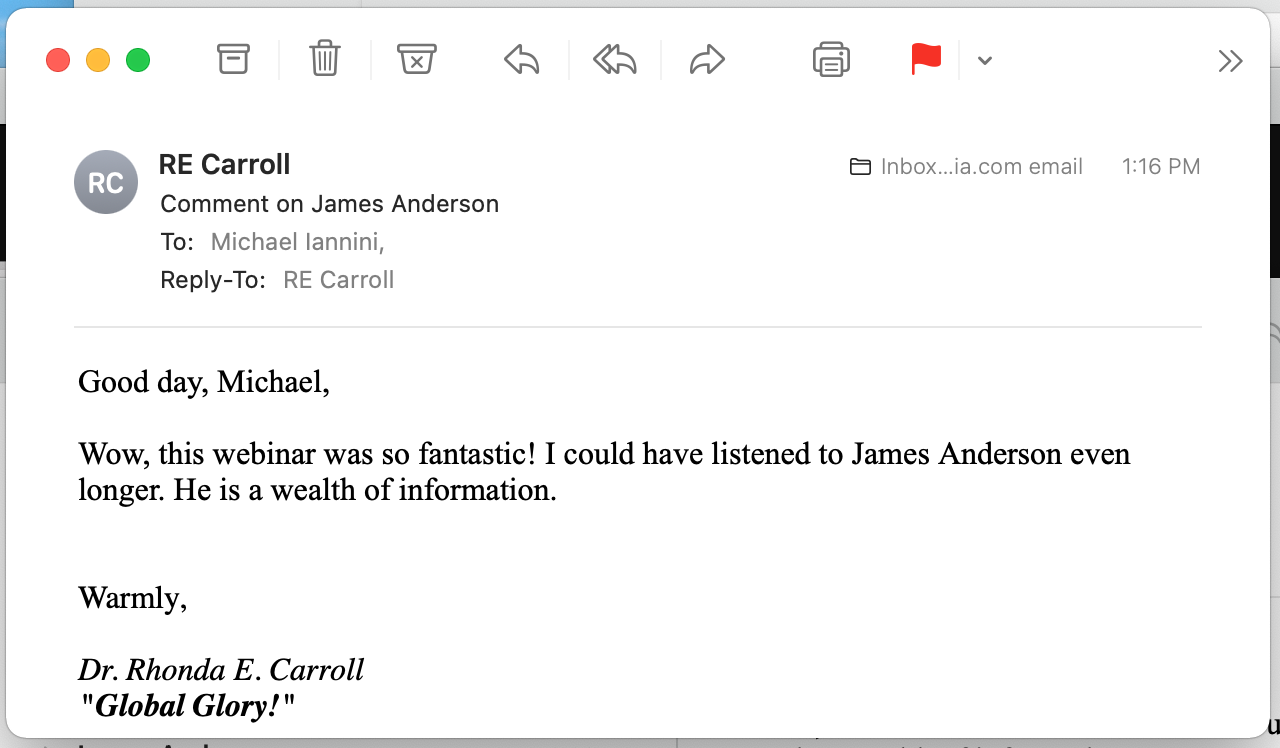
Learnership - The Skill of Learning
1-hour Webinar Lead by James Anderson
What People Are Saying…
Do your students have a good relationship with Challenges?
How many times have you heard a student ask, “Do I have to do this?” Or, “Can I do something a bit easier?”
Do your students look for the easy options, seeking the “path of least resistance”?
Do too many of your students focus on completing work rather than completing it well? Do they ask, “Is this good enough?” Or “Is this going to count”?
Perhaps your students are inclined to give up as soon as they begin to struggle, even just a little.
Do your students sometimes stre-e-e-e-e-e-tch the time they spend on tasks to avoid attempting the hard problems at the end of the lesson?
If this sounds familiar, then your students don’t have a good relationship with challenges. They look for the instant gratification of doing something easy instead of the long-term gain of doing something difficult.
Register now for Jame’s live facilitated PD Program ↓
Learnership -
The Skill of Learning
February 17 and 24, March 3, 10, 17, 24, 2022
4:00 PM - 5:30 PM (Hong Kong/China Standard Time)
Students with a poor relationship with challenges need to be led, and sometimes dragged, through the learning process. They need the teacher to identify their Learning Zone, then scaffold and guide their learning.
All of which is exhausting for the teacher!
And when these students become adults, what then? What happens when there’s no teacher to push them or encourage them to grow? These students end up with little agency in the world. They become victims rather than the masters of their circumstances.
How can we help these students embrace challenges and leverage them in a way that enables them to grow?
Skillful learners embrace their Learning Zone. They become comfortable with their discomfort, embracing the “desirable difficulties” in this zone and leveraging them to grow.
The first step in guiding our students to become more skillful learners is to help them recognise the difference between their Comfort, Performance, Learning, and Aspirational Zones, and the benefits and consequences of targeting challenges in each.
Comfort Zone
Working in your Comfort Zone feels easy. You know you’ll be able to get the work done. Even if you haven’t done the task before, you’re confident it’s just going to take time.
Learning Zone
Your Learning Zone is more uncomfortable. It feels like you’re tackling a problem you don’t immediately know the answer to. You’re 7/10 uncomfortable. There’s struggle and uncertainty, and you’ll almost certainly make mistakes. Also known as your Zone of Proximal Development, this zone represents the “stretch” (not strain) you feel when you work just beyond your current best. And it’s through the struggle and discomfort of your Learning Zone that you begin to grow.
Performance Zone
In your Performance Zone, you feel like you’re doing your best. It takes all your resources to produce your current peak performance. But at the end of the day, all you do is reproduce a standard you’ve reached before. You’ve been busy, you’ve worked hard, but you haven’t improved.
Aspiration Zone
Going too far beyond your current best puts you in your Aspirational Zone. This feels like a strain. It leaves you confused, unable to see your way forward, and you feel “out of your depth”. No amount of time in your Aspirational Zone creates much growth.

One of the first steps in becoming a skillful learner is to recognise the difference between these zones and become familiar with how they “feel”. Then, you need to learn what to do when you’re in each of them!
Skilful learners embrace their Learning Zone. They become comfortable with their discomfort, embracing the “desirable difficulties” in this zone and leveraging them to grow.
Would you like to know more about how you can help your students become skilful learners? To embrace challenges and develop Learnership?
Register for Jame’s Online PD Program ↓
Learnership - The Skill of Learning
February 17 and 24, March 3, 10, 17, 24, 2022
Too many of our students take the easy path, trying to get by on the bare minimum amount of work. Their idea of success is often about completing the work and getting it done, instead of challenging themselves to it done well. James Anderson, who for more than 20 years has been teaching frameworks that develop robust and enduring Growth Mindsets in the classroom, will help participants understand how learnership can improve student outcomes and save teachers time.
This is for teacher leaders, ideally with their teams, so that they can draw upon a variety of tools and strategies to support their team members to achieve:
Improve student outcomes across the team; and
Understand how to more effectively support classroom teachers that are overwhelmed.
James Anderson is an Australian-based international speaker, author, and educator who is passionate about helping fellow educators develop students as better learners.
Originally a teacher and school leader, for the past 20 years, James has been working with schools to make classrooms more thoughtful places. He challenges teachers to think deeply about their own Mindsets and how their beliefs are communicated to students in often subtle and unintended ways.





